
Using monofilament fishing line for carp – everything you need to know
When it comes to carp lines, a traditional nylon monofilament is still one of the best fishing lines that you can use
Monofilament fishing line is by far the most commonly used type of line for carp fishing as it is so versatile and easy to use.
It is something that anglers have been using for many years and is still what you will find loaded onto the reels of most people who are targeting carp, unless they are fishing in particular situations which require the use of a braided line or fluorocarbon line, or where these other types of main line offer an advantage.
Although technically fluorocarbon is also a monofilament, it behaves differently to a standard nylon line, and has different uses due to its properties, so carp anglers tend view it as being in a line category all of its own.

So for the purposes of this article, we will focus on nylon monofilament lines, what they are, and what makes them such a good all round choice for catching carp.
It is also the case that many fisheries and angling clubs don't allow the use of braided main lines for fishing with anyway – only allowing their use for plumbing or spodding -which also accounts for the fact that mono is so popular, and certainly when you compare it to the price of an alternative fluorocarbon main line.
How is nylon fishing line made
It's name comes from the fact that a single – hence the name mono – strand of nylon is extruded and stretched into a continuous length of fishing line, of whatever diameter is required.
The properties of the finished line are determined by the specific types of nylon polymers that are used to make it, as well as the process that it undergoes during manufacturing.

Even small changes can have a fairly dramatic impact on how it behaves, and even the addition of dyes to colour the line can change that and result in a line that stretches more than a natural clear one would do, although again, the extent to what impact that has is dependent on the exact material used and also the process it undergoes.
With some brands/types of lines, a colour other than clear will exhibit a lot more stretch, and this isn't really something you want from a carp line. The Korda range of monofilament lines is manufactured in such a way that if you do opt for a green or brown version, it won't behave all that differently from how the same clear line would do.
How important is stretch in a carp fishing line
One of the biggest factors when it comes to monofilament line is the amount of stretch that it has, as this has such an effect on performance.
When playing a fish, the only cushioning that you really get, especially at the point where you first connect with it, is via the bend in the rod and also the stretch in the line, plus of course how your clutch is set - or if you back wind, how fast you are able to engage that and keep up with the fish when it runs.

Some anglers do prefer to have a small amount of stretch in the line that absorbs the lunges of a carp during the fight – by contrast, if you play a fish on a line with zero stretch like a braid has, you can feel everything through the rod and until you get used it, that can feel very jerky.
For less experienced anglers, having some amount of stretch in your line is a good thing as it is more forgiving if you do make a mistake, especially when the fish gets closer in, and reduces the chances of you pulling the hook by accidentally putting on more pressure than you intended to or not responding quickly enough when the carp tries to run. Which is why we have the Basix Main Line within the Korda range, which still performs very well, but comes at a very affordable price, and gives you some degree of cushioning.

Some nylon fishing lines can stretch by 10% or more when under heavy loading, such as playing a fish, and generally the thicker the diameter the line is, the more it will potentially stretch – this is due to the way that the chains of molecules which make up the line are formed and combined together.
Having that amount of stretch can of course be a big disadvantage in some situations, such as when fishing to snags or any situation where you don't want the fish to be able to take line, and the effects are exaggerated more the further out you are fishing.
Some of this stretch is taken out of the line through use and being repeatedly stretched by casting and playing fish, but it is possible with some lines that if you were fishing locked up at 100 yards range and hooked into a fish, the line could potentially give that carp an extra ten yards via the stretch in it, without you even allowing anything to be taken from the reel end.

How much the line stretches also plays a big part in the casting distance that you can achieve as it will determine how much of the power and force, that you build up in your rod during the cast, is subsequently transferred through the line to your lead, and how much is lost as it stretches the line.
This is why heavy monofilament shockleaders, for long range casting, are inferior to a braided leader, as these types of leaders will always have a fair amount of stretch, and therefore a dampening effect on power transmission during the cast.

Line stretch will also have an impact when you hit the clip and the lead suddenly stops, as the force of that will cause the line to stretch and potentially for your rig to land slightly further than you intended it to – certainly if you have found your spot using a braided line such as Marker Braid on your plumbing rod and then clipped up your fishing rods to the same distance.
To what extent this has an impact will depend on the type of mono used, and lines such as the Korda LongChuck have been purposely designed to minimise that, not only for improved casting but also for increased accuracy. Especially so once the line has been used a few times and additional stretch has been taken out of it – after being stretched and released repeatedly, the line will lose some of its stretch.
The same is true with the new Korda Kaizen Mono, which has been designed to have low stretch and give plenty of feel, whilst still being very abrasion resistant and with a high breaking strain to diameter ratio.

Another important factor is how well the line allows you to feel your lead down to the bottom and to accurately be able to gauge what it has landed on. A line that has been stretched as you hit the clip and is now in the process of losing that stretch, once that extreme force is released and your lead is sinking through the water, will give you a lot less feel than one with lower stretch – it will never feel quite the same as braid, but what is transmitted back to the rod with a good mono with lower stretch, is a significant improvement over a very stretchy nylon that makes it hard to gauge what type of lake bed you have landed on.

How tough and abrasion resistant is your line?
The abrasion resistance of the finished line is important as this determines how tough it is and how well it stands up to a fishing situation where it could come into contact with rough surfaces.
In many carp lakes there are snags in the water such as trees, reeds, and rocks, or other things which can also potentially damage the line if it comes into contact with them such as mussels. All of these can cause your line to break, so how well it is able to deal with them is important.

Nylon lines, such as the Korda CarpLine and others, are designed to be able to withstand a certain degree of abrasion before they eventually shred or cut, and fail.
What they actually come into contact with is a big factor, as is how much tension the line is under, as something very sharp, such as the edge of a zebra mussel or a rock, can very easily cut the line – although the same goes for any type of normal main line.
When it comes to snags such as trees or any type of wood, a nylon line can actually be much better than braid in some ways, as it tends not to cut into the surface of the wood so easily and is more likely to slide around it – this is one of the reasons why anglers often favour a heavy mono leader on lakes with lots of tree stumps in them.

As long as you are using a sufficient diameter of line for the situation, and you check the last ten metres or so of line after every fish, if you do feel that it has come into contact with something during the fight; and if the line feels damaged or rough as you run it between your things, then you cut that section off, then you shouldn't be experiencing regular line breakages. If you are, then it suggests that the situation requires some sort of snag leader.
It's also worth noting that, with monofilament nylon lines, although tough in terms of their abrasion resistance, and depending on which brand you choose, they don't like extreme pressure being put on them when they are at a sharp angle, such as if a carp wraps it around a branch, reed stems, or even thick weed and lily pads, and mono is far more prone to snapping when force is applied to it in this way, versus when the pressure is in a straight line. Braided lines are far less affected by the angle the force is being applied to them at.

How your fishing reel line behaves
As well as its stretch and abrasion resistance, the way that your fishing line behaves during use is also very important.
After all, a length of nylon like that used for strimmers is technically a monofilament line, yet you certainly wouldn't want your fishing line to have similar properties - ideally a nylon carp line will have low memory and will be supple.
When we talk about the memory of fishing line, this basically how much it ‘remembers' the curvature of whatever it was wrapped around – i.e. your reel spool or the spool that the line originally came on.

A line with a high memory will ‘remember' the shape of that spool and so will come off in coils, which makes it less user-friendly, as they rattle through your rod rings and increase the chances of the line getting caught around your rod rings during the cast and resulting in a crack-off.
All fishing lines suffer from some degree of twist, but those with a high memory are even more prone to it, and it can make them hard to use, as any slack results in the line wrapping itself around your tip ring, or even springing off of the reel spool.

How supple your line is, also plays a part in all of this, and a very stiff line causes similar problems to one with high memory. If you can hear your line going through the rod rings loudly on the cast, then that means you are losing energy and it is creating additional drag, and therefore distance is reduced.
Just how low memory and how supple a fishing line is, has to also be balanced with the other attributes that it needs, as generally you can't have a highly abrasion resistant line that is also very supple, so there will always be some trade off between the two.
You do get lines though that are very good all-rounders, such as Korda Touchdown, which as well as having a good combination of being tough but at the same time user-friendly, it is also low stretch and provides more feeling than many monos, in terms of feeling your lead down.

How well does your fishing line sink and absorb water?
In most fishing situations it is important how well your line sinks, and whilst all monos sink, the rate at which they do so varies greatly.
Nylon monofilament is actually hygroscopic, meaning that it can absorb water molecules, although the degree to which it does so will depend on the type of polymers that have been used to create the line.
In some cases a certain amount of water absorption can be a good thing in terms of it helping to ensure that the line sinks well, and it also effects the behaviour of the line in terms of making it more supple – which is why it is often recommended to soak your main line in water before spooling up your reels, and also why wet fishing line feels nicer and is less coily. But too much absorption can be a bad thing and actually weakens the line and reduces knot strength.

Another big down side with lines that absorb larger amounts of water is that this subsequently makes them heavier, so when you come to recast, the extra weight of your line will cut down on distance to at least some extent. That is the reason why the Korda LongChuck, which is specifically aimed at anglers fishing at longer ranges, has been designed so as to have very low water absorption, and therefore its performance won't alter as much from dry to wet, meaning consistently very long casts.
The weight of the line obviously also depends on how much of the nylon material there is and the density of that, versus a particular diameter and breaking strain.

For instance, a 10lb breaking strain line is typically 0.30mm in diameter, but some lines with those specifications will be heavier than others, and that means that they will sink better and faster. Even just adding a dye to a line will make it heavier and affect its properties.
Some lines are purposely designed to be heavier, so as to ensure that they sink really well and actually behave more like a fluorocarbon does – one of the main reasons that carp anglers use it as a main line is the way that it sinks. That is very much the case with Korda SUBline, which was designed to be perfect for slack line fishing, as not only does it sink very well compared to other monos, but it is also very supple and so hangs down from your rod tip (as opposed to coiling through the water as some less supple lines might do when fished slack).

A line which is laying along the lake bed – where that is appropriate and it isn't going to just get caught in snags – means that there is much less chance of a carp bumping into it.
The rate at which the line sinks is also important, and especially when casting out in a cross wind, as you want the line to sink as fast as possible and to avoid a big bow in it, to give you as direct a line to your rig as possible, and especially so if there is anything in the water that a bow in the line could catch around as it eventually tightens, such as snags or weedbeds.
A monofilament main line will never sink quite as well as a fluorocarbon, but in some situations it makes up for that by being superior in other areas, such as casting performance.

Breaking strain and diameter
As well as choosing a line that has the right attributes to make it as suitable as possible to the type of fishing that you are doing – whether you need one that can cast a long way; is very abrasion resistant; or is perfect for slack line fishing – you also need to make sure you are using the correct breaking strain.
The breaking strain of your line is intrinsically linked with its diameter, which is no real surprise given that the diameter determines the cross sectional area of the line, and also explains why breaking strain and diameter aren't a linear relationship – if you were to double to diameter you would significantly more than double the breaking strain, and in theory you would quadruple it, although it doesn't quite work like that due to the properties of the material used.

Diameter is important, and especially so where there is a chance of the line becoming damaged by abrasions, and the thicker the line is to start with, the less chance there is of it being worn through completely, or losing so much of its strength that it snaps.
The diameter of your line will also determine how far you can cast with it, or even how much line you can fit on the spools of your reels.
So diameter is very important, but when it comes to carp fishing we tend to refer to the breaking strain of the line – although these days with distance casting and the like, diameter is starting to be a thing amongst carpers, rather than just matchmen, where it has been commonly used for years when talking about the line being used.

It is worth remembering that breaking strains are often fairly arbitrary as well, in terms of them being the minimum that particular line will break at, and sometimes they can be very understated – not necessarily a bad thing as the line will typically break well above where you are expecting it to, in terms of pressure that needs to be applied to snap it.
For general carp fishing, you aren't going to be using a line below 10lb breaking strain, and these days 12lb or 15lb tends to be more common, unless you are fishing somewhere pretty much weed and snag free, or are needing to cast very long distances and are using a lower diameter monofilament line in conjunction with a shockleader. If the venue you are fishing is particularly snaggy or weedy, then it may even be necessary to step up to a 20lb breaking strain line, and our most popular types of lines are available in that.

It is worth remembering that the heavier the breaking strain, the thicker the line is, and generally the less user friendly it becomes, to at least some degree, so there is little point fishing with 20lb line unless you actually need to, as the benefits that you get from doing so, when on a venue where it is needed, will be outweighed by the negatives, such as how supple it is, how well it casts, the amount of twist and memory, and the like.
Tapered lines have changed long range fishing
A more recent addition to the types of monofilament main line choice has been tapered lines, and they are a big advantage when fishing at long range.
Tapered nylon leaders have been around for a long time, and although they did taper down from a thick section that took all of the force of the cast, to a much thinner length that was knotted to your main line, they still needed a knot. These tapered shock leaders were designed to produce a much smaller and neater knot than you would get if you joined your line directly to a thick leader material, and also to help it pass through the rod rings more easily, thanks to the taper, but having any leader knot at all definitely reduces distance, as well as increasing the chances of frap ups and crack offs.

A tapered main line though, such as Korda Longchuck Tapered, means that there is no need for any sort of leader, as each end of the 300m length that it comes in features an 8m long section of 30lb line which takes all of the force of the cast – it is the same at each end, so if you do get cut off or the line gets damaged at that end and needs changing, you can simply reverse it on your spool and get a second use out of it.
There is then a 2m section which smoothly tapers from 30lb down to your chosen breaking strain/diameter, with a choice of 10lb, 12lb, or 15lb – this taper reduces the chances of frap ups, which can be caused when two very different stiffnesses and diameters of line are joined together. You will notice that these breaking strains are of a lower diameter than normal, at 0.27mm, 0.30mm and 0.33mm respectively, and this is because the line is pre-stretched as well as being strong for its diameter.

This type of main line has become very popular for long range fishing, and the low stretch allows as much of the force as possible to go into the cast, and there are no knots clattering through your rings and reducing potential distance.
It means that 15lb main line can now be used to fish at the sort of distances that in the past wouldn't be possible, and gives you a much better chance of landing fish, especially when fishing over gravel bars and the like at long range, or where there is weed.

Tapered monofilament nylon lines are also really good for fishing solid PVA bags, where you need something that can absorb the shock of casting that sort of weight without fear of crack-offs, even if you aren't trying to hurl larger solid bags towards the horizon.
Using the right knots
One of the most common reasons for a tackle failure whilst playing a fish is due to the knot either slipping or strangling the line and causing it to snap.
Some monofilament lines are more forgiving than others in terms of the knots that you can get away with and how well they are tied, but the aim is always to achieve as high a knot strength as possible, and the Korda main lines are designed so that can be achieved.

You need to avoid knots that can strangle themselves under pressure, as that force will eventually cause the line to snap if it weakens it too much, and things such as blood knots or overhand knots can cause that – you might see them being used with special materials such as Mouth Trap hook link, which is a mono but acts differently and is thick and heavy, and with a very high memory.
To join your main line that things such as your hook link swivel, Heli-Safe System, Hybrid lead clip, or similar, the best knot to use is a five turn grinner, which is easy to tie and if done correctly, gives a very high knot strength.

For attaching any ready-made leaders that have a loop in the end, such as those in the Dark Matter or Kable ranges, the simplest way is to tie a figure of eight loop knot – not just an overhand loop knot as that is significantly weaker – and then join them loop to loop style.
Other than that, the only other knots that you will really need are one to attach the end of your line to the reel spool when you load it up, and possibly leader knots for mono to heavy mono, and mono to heavy braid, if you do end up using some sort of shock or snag leader.

Whichever type of knots you choose, it is important to make sure that the knot is well lubricated before you tighten it, so that it beds down properly and also doesn't create friction and potentially damage the nylon, and saliva is great for this and something you will never run out of!
How to guides
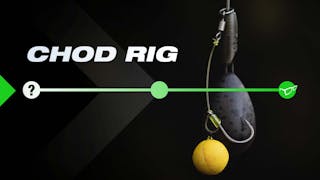
How To Tie The Chod Rig
Learn how to tie a Chod Rig, perfect, everytime!
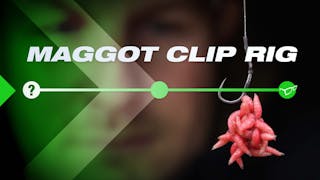
How To Tie The Maggot Clip Rig
Rob Burgess shows how to tie a simple, yet effective rig for presenting maggots
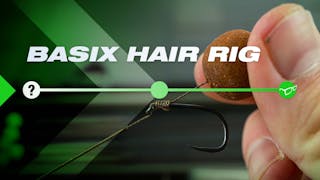
How To Tie The BASIX Hair Rig
Here is an easy to follow guide on how to tie a Basix Hair Rig
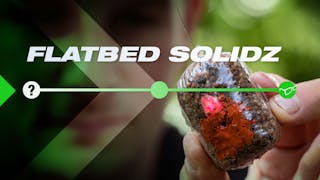
How To Tie The Solid PVA Bag (Flat Bed Style)
Korda Koach Rob Burgess show's you how to tie his Solid PVA Bag in his unique Flat Bed
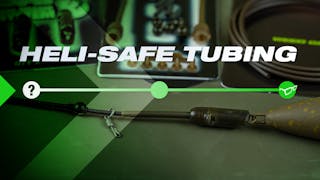
How To Set Up A Heli-Safe Tubing Kit
How to set up a Heli-Safe Tubing Kit

How To Tie A Combi Rig With Loops And Booms
Constructing a Combi Rig has never been easier!
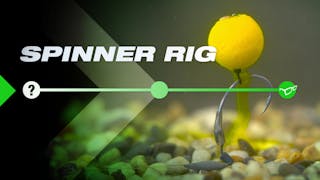
How To Tie Spinner Rig
Tom Dove explains how he likes to tie the famous Spinner Rig
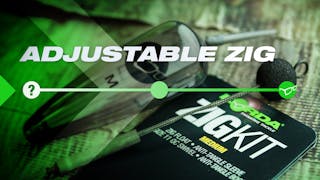
How To Use Adjustable Zigs
Dovey talks you through how easy adjustable zigs are to set up and exactly how to use
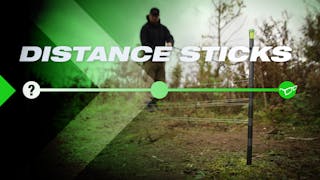
How To Use Distance Sticks
Distance Sticks are a key product in helping you fish spots accurately every time!
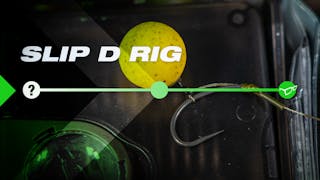
How To Tie The Slip D Rig
How to tie a simple, yet effective Slip D Rig
Advice and tips
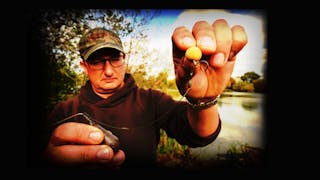
Danny Fairbrass on using the Multi Rig
Despite being a self-confessed ‘rig man’ DANNY FAIRBRASS took a while to try the multi
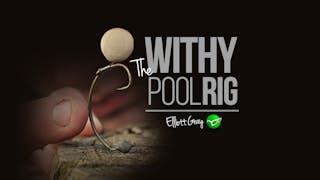
A Guide to the Withy Pool Rig
The Withy Pool Rig, Elliott Gray explains.
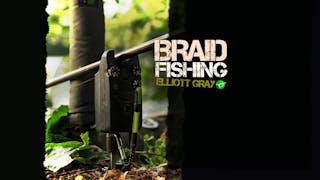
Ultimate Guide to Braid Line Fishing
Elliott talks braid and why he loves it.

Jamie Londers - Goo Tips
Carp catching machine Jamie Londors talks the importance of Goo in his angling.
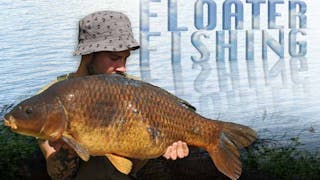
Elliott Gray - Floater Fishing
Elliott discusses one of the most exciting ways to catch them.
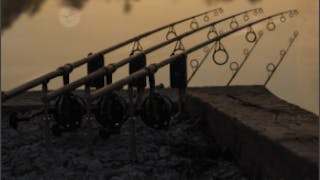
Elliot Gray - Particle Fishing
Particle fishing with Elliott Gray.
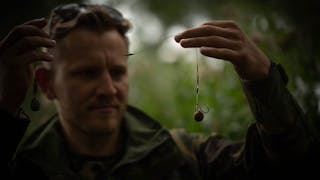
Scott Sweetman - Fishing In The Silt
Scott talks how and why he likes to fish in the silt.
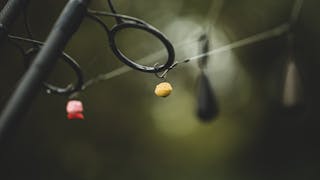
Luke Vallory - My Three Rigs
Luke explains what his go to set up is for bottom baits, wafters and pop-ups.
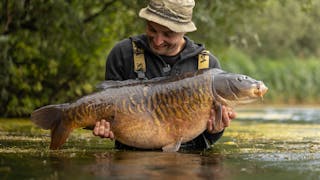
Tom Stokes - Fishing in Weed
Tom Stokes explains how to fish in and around the weed.
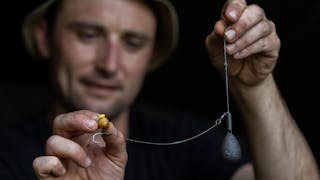
Tom Stokes - Why I Fish Heli Safes
Tom reveals how and why he fishes with Heli Safes.
Angler features
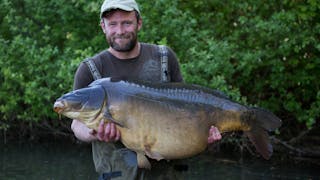
Darrell Peck - The Black Mirror
Peck recounts his campaign for one of Europe's best, 'The Black Mirror'.
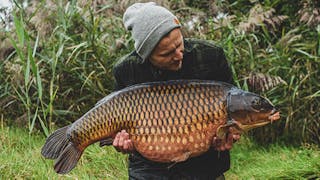
Scott Sweetman - Two A-Teamers In One Net
Scott Sweetman Tells The Story Of A Night He Will Never Forget

Marc Cavaciuti - Spring Tactics
Can discusses spring tactics in depth.

Barry Delderfield - The Campaign
Barry reflects on an incredible campaign on 'The Nunnery'
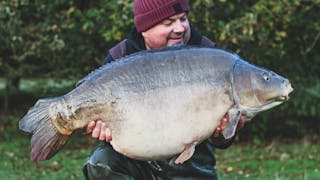
Dave Finn - A 35 Year Flame
A nostalgic reflection on Finny's 35 years in carp fishing.

Elliott Gray - Fishing in the Edge
Elliott discusses his favourite way to catch them, in the edge.
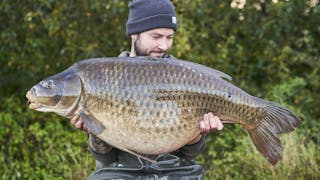
Elliott Gray - The Autumn Campaign
A campaign Elliott will never forget, ending in a huge UK common.
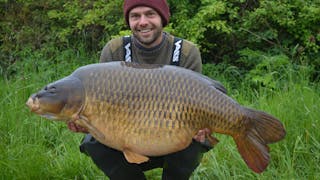
James Salmons - The Spring Campaign
The story of an epic spring campaign, ending with a huge UK common!
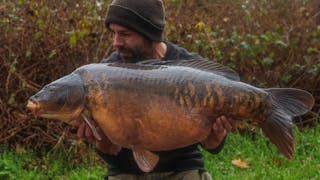
Luke Vallory - Autumn on Dinton Pastures
Luke reflects on a prolific autumn on the tricky Dinton Pastures.

Oscar Thornton - Winter Mindset
Oscar reveals his biggest winter edges that makes his winter fishing so prolific.
Product focus
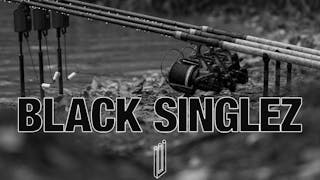
Black Singlez - Rod Support System
Introducing Tom Dove's Brainchild, the super-light Black Singlez rod support system!
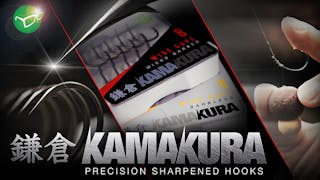
Kamakura - Precision Sharpened Hooks
We believe a sharp hook to be the single most important part of your tackle.

Kiana Carp Goo - Scopex and Buttercorn
Here's what you need to know about Scopex Cream, Super Scopex and Buttercorn Goo
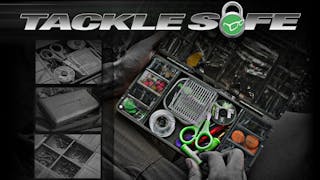
TackleSafe - Terminal Tackle and Rig Storage
The ultimate storage product for your essential items of terminal tackle.
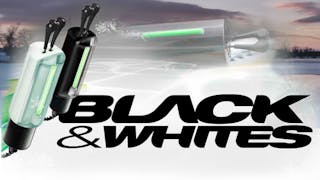
Black & Whites - Bite indicators (Bobbins)
Here’s a look at the latest Black & White bobbins.
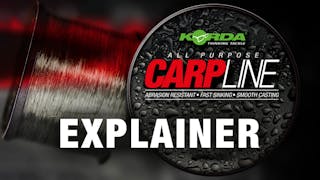
CarpLine - Monofilament Fishing Main Line
We reveal why Carp Line has won so many fans in the carp world.
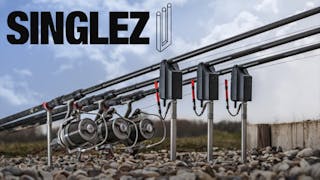
Singlez - Rod Support System
Everything you need to know about Singlez.
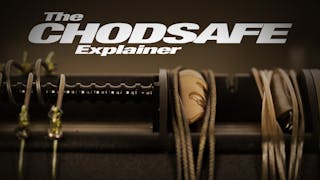
ChodSafe - Chod Rig Storage
The ChodSafe is the mother of the RigSafe family.
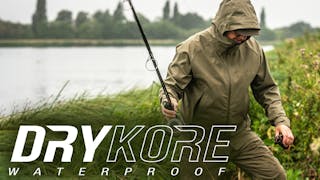
Drykore - Waterproof Clothing Range
The DRYKORE range is breathable, lightweight, and constructed from industry-leading 15K
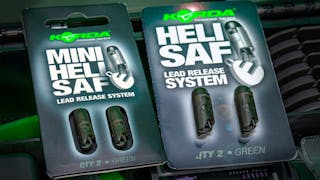
Heli-Safe - Lead Systems
A uniquely designed product allowing the angler the choice to drop their leads while
Related news
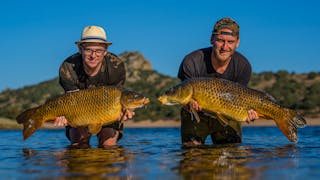
Watch ALL Monster Carp Episodes on ITVX
20.06.2022
The eagerly awaited seventh season of Monster Carp is now available on ITVX, and is even

UNDERWATER - The Test Tapes revealed
19.01.2023
UNDERWATER “The Test Tapes” follows Danny Fairbrass and Team Korda on an exciting journey
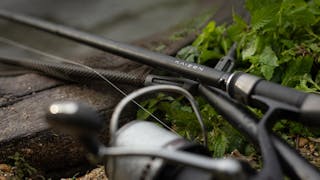
The NEW Kaizen Platinum range of rods!
21.03.2023
After several years of development and many hours of testing, we finally have a range of

Monster Carp Returns With Season 8 at 8pm, July 6th!
04.07.2023

Thinking Tackle Returns To Gigantica! Here's the details
04.08.2023
Darrell Peck and Danny Fairbrass Return To Gigantica! Watch On Youtube - Available Now
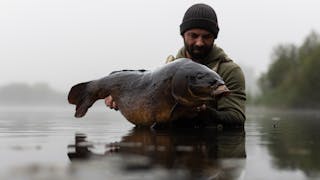
A good as Carp get! Luke Vallory catches Coins
02.10.2023
Coins a special carp caught by Luke Vallory
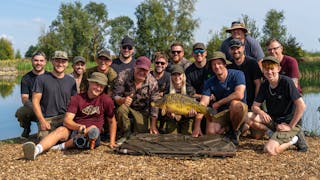
The Melanoma Weekender at Baston Serpentine Lake
02.10.2023
An event held on the unfished Baston Serpentine Lake to raise money for Melonoma Focus. A

New Thinking Tackle film at the iconic Lake Bled
18.10.2023
Darrell Peck takes a trip to Slovenia to tackle Lake Bled

Tom Maker has one of his best winter sessions EVER!
21.02.2024
Tom Maker has one of best ever Winter Sessions

Korda Vlog 007 Out Now!
26.02.2024
Johnny Old and Oscar Thornton's Winter Carp Fishing Carnage!
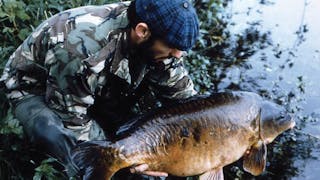
Ritchie McDonald Mindset film out now!
04.03.2024
A look into the Mindset of carp fishing legend Ritchie McDonald
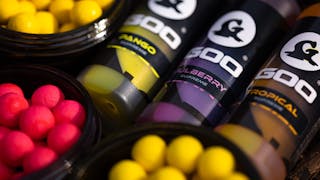
Goo, NEW hooks and more in our latest product launch!
15.03.2024
March 2024 Product Launch

Out Now: Spooner and Dovey's Latest Episode at Frimley
17.03.2024

Special 100th episode of the Thinking Tackle podcast out now!
18.03.2024
This special episode of the Thinking Tackle Podcast features Danny Fairbrass, Damian
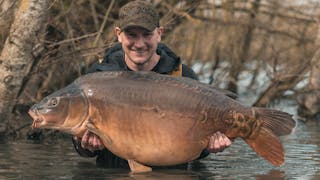
Big Hit Fishing Masterclass - Available now !
25.03.2024
Big Hit Fishing Masterclass with Rob Burgess is available now !
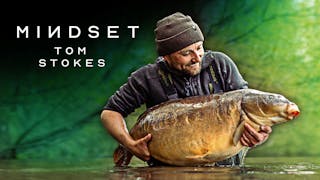
Tom Stokes at Stoneacres is out THIS SUNDAY
12.04.2024
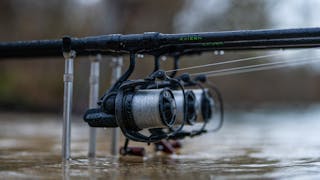
NEW Kaizen Green Rods are out now!
23.04.2024
Our new Kaizen Green range of rods, that offer exceptional performance and looks, but at a

Spooner's Tactics Fishing The Secret Lake
03.05.2024

BIGGEST carp caught by a female angler in the UK! 🎣🔥 WOW!
31.05.2024
Naomi Turner's RECORD BREAKING catch!

You Care, We Care, Fishcare & More New Products
28.06.2024
June 2024 Launch - A range of eagerly awaited products are now available in stores.

Fishing: Darrell Peck Catches His 100th UK Carp Over the Magical 40lb Mark! | Korda
05.07.2024

Summer Day Ticket Masterclass - Darrell Peck
19.07.2024
Darrell Peck reveals the tactics that bring him so much summer success on day ticket lakes

Underwater - Norton Disney is out now!
29.07.2024
Watch now as Danny Fairbrass and Tom Stokes try to outwit the carp with their best rigs in

The rig evolution that changed Danny's fishing forever!
30.07.2024
Danny Fairbrass made numerous rig tweaks during Underwater filming before finding the Holy

Part 2 of the Tom Stokes Korda Mindset film out now
29.08.2024
Tom heads back to Stoneacres, in Oxfordshire, to continue his campaign for some of the
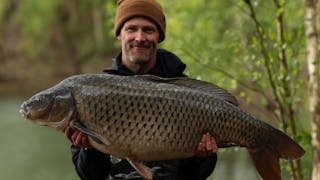
Thinking Tackle Carp Arena out now
01.09.2024
Darrel and Tom head to Belgium for a spring session on Carp Arena's Clover where they hope

‘What We Thinking Tackle” Danny Fairbrass in Hungary
20.10.2024
‘What Were We Thinking Tackle” Danny Fairbrass in Hungary

NEW RELEASES - Drykore Jacket and Over Trousers MK2, plus a larger Tackle Box.
10.12.2024
New Drykore clothing plus a larger Tackle Box are out now.

Kaizen Green Dreams
12.12.2024
Kaizen Green rods are now back in stock

Underwater After Hours - out now!
23.12.2024
Darrell Peck is in front of the Underwater cameras for the first time, how will his rigs

NEW RELEASES for March
12.03.2025
New tackle and clothing out now
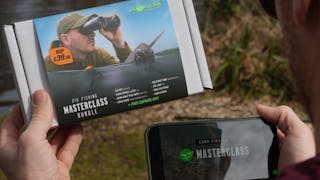
Zig Kit Bundle out now
28.03.2025
All the components you need to fish adjustable zigs just like Rob Burgess
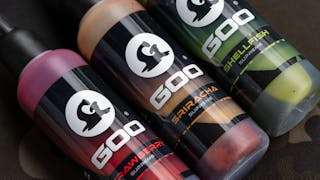
Exciting new products for April!
14.04.2025
New Korda products out now - including additions to the Basix range and latest Goos
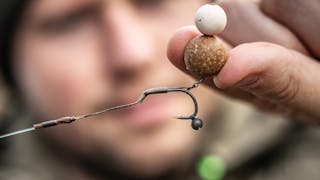
Eagerly awaited new Korda products are out now!
21.05.2025
Exciting new products for May 2025
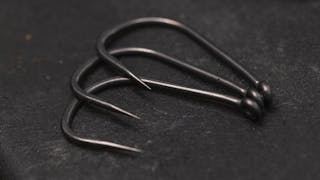
New Korda products for June in shops now!
20.06.2025
Everything you need to know about the new additions to the Korda range

Exciting new products released just in time for Xmas
04.12.2025
All of our latest product releases explained in detail
